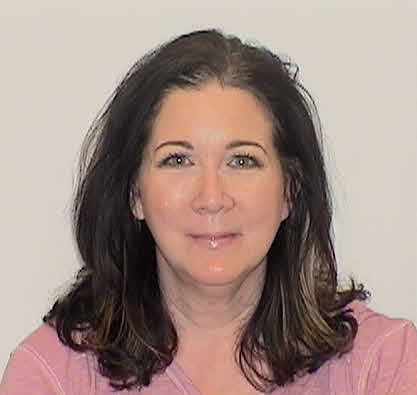Why Dr. Tanya MacMartin loves teaching middle school kids.
“I try to encourage our candidates to see that there is beauty in every age level.”
Tanya MacMartin’s passion for science began many years ago at SeaWorld, where she worked as a marine science instructor teaching marine biology courses all around California and the Western United States. However, being a classroom teacher was not always part of her chosen career path. “I had two job interviews scheduled for the exact same day at the exact same time. One was for a job in animal training, and the other was for a science instructor position at SeaWorld. I was torn on which one to attend. A friend of mine said, ‘All I know is a killer whale is never going to write you a thank you letter.’ That choice changed my career path forever, and it sums up what inspires us and why we do this job. Having the opportunity to impact a student’s life and perhaps be a person they remember 20 years later is such a rewarding and valuable part of our job. Knowing that we're part of someone’s academic journey is an honor”
Tanya MacMartin, EdD, became a full-time assistant professor in the teaching credential programs at Alliant in 2019. Her 25 years of experience teaching middle school informs her approach to preparing future instructors. She thinks one of the best parts of teaching at Alliant is the understanding that education is constantly evolving and the school’s commitment to teaching the latest methodologies. “Teaching now is totally different than it was 10 years ago, and we are willing to change our instructional practices to make sure our students are best prepared for this dynamic field right now.”
“Tanya believes that higher ed professors need to maintain connection to a K12 classroom to stay relevant and informed with all the changes occurring in the dynamic field of education. She promotes that every age and grade level hold their own unique challenges. Originally, she thought she would prefer teaching younger elementary students. It was not until she took a long-term substitute job in middle school that she found her true passion—teenagers. But once she landed there, she never left. “I love middle school. It is exactly where my passions are with K-12 teaching. I try to encourage our candidates to see that there is beauty in every age level.”
One of the things she loves about teaching science to middle school kids is that they are young enough to be fascinated, but old enough to take on in-depth learning experiences. She also loves that middle-school kids are testing their independence. “That part can be trying to some people, but if you understand that pedagogically that's what they're supposed to do, it makes you not take it so personally if they challenge you. They're supposed to test you and their independence. They're supposed to learn how to fly on their own and challenge others’ ideas.”
Tanya thinks middle school kids are also at a great age to learn the personal skills they’ll need as young adults, even if you must force them to put down the technology to do it. Something as simple as walking up to someone, shaking hands, and making eye contact with them is something they will be expected to know how to do. “At first, it can be unsettling for them to learn how to be a young adult. I tell them to test my hypothesis and go to their coach, boss, or even their teacher on the first day of school and shake their hand. Then watch how they will treat you differently. If you want to be treated like a young adult, you have to act the part. One of the most important skills is learning how to connect to other adults face to face.”
When asked what advice she gives new teachers on their first day in the classroom, Tanya tells them to build relationships before worrying about the content or the lesson. “You can’t get anywhere if they don’t like you. I'm not saying to be every student’s best friend. I'm saying that they need to respect you and respond to you well before you're going to teach your first lesson. I spend the first two weeks of my year just building rapport and doing teambuilding activities. It’s not time wasted. Once you establish strong relationships, the kids will do anything for you.”
We spoke to Tanya close to Teacher Appreciation Week and asked her to share her thoughts about it. She said the best appreciation for teachers would be just a simple ‘thank you’ or an email of support. That would make them feel seen. “Teachers need the support of parents and the community. We’re all in this together, and if we work as a team, the results will be a new generation of students who are adaptable, relatable, resilient, and tenacious.”

